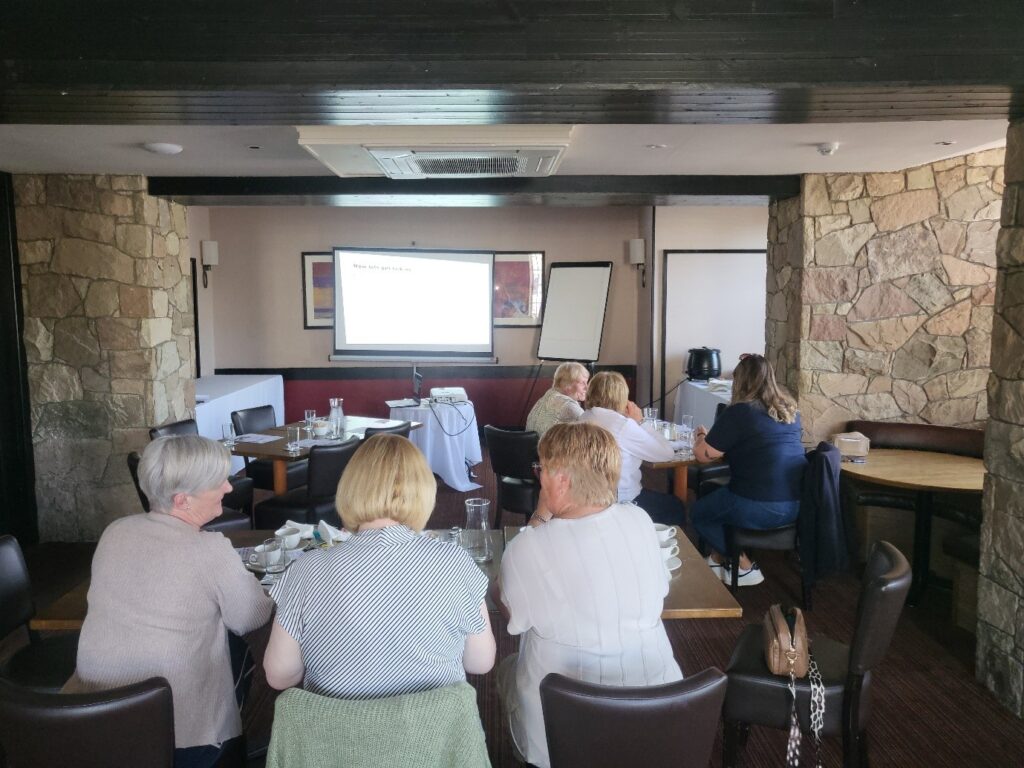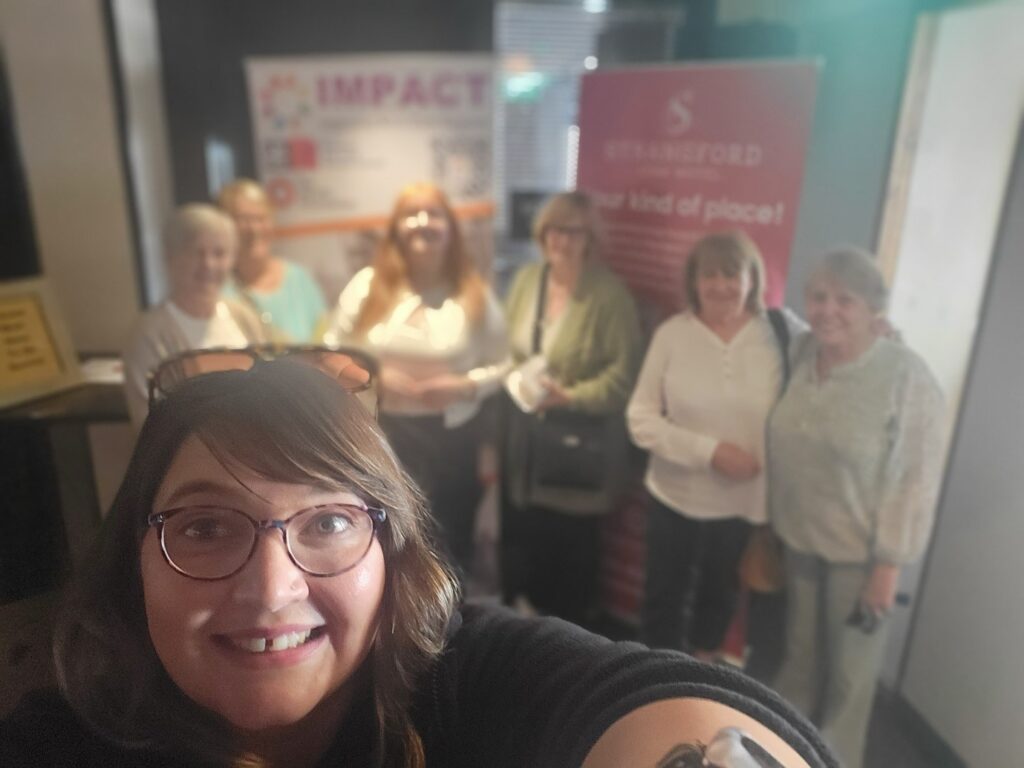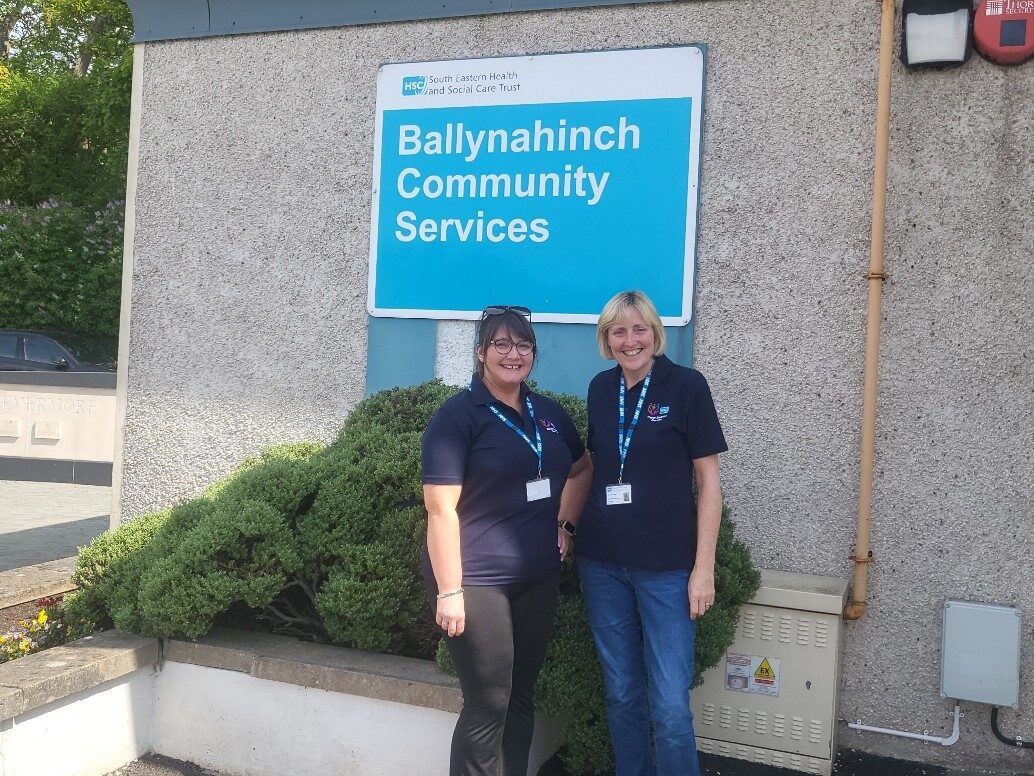Improving Support for Unpaid Carers
Project Background
On this project our IMPACT Facilitator, Orla, is based within the South Eastern Health and Social Care Trust, Carer Support Service in Ballynahinch Community Services, and this project is co-hosted by Carers NI. The Carers Support Service in the South Eastern HSC Trust is a central point of contact for carers of all ages. Information and advice can be provided, and the service can signpost carers to relevant groups, organisations and support networks within and outside of the Trust. Carers NI is part of Carers UK and is the leading national charity for unpaid carers. Carers NI supports, advocates for, champions and connects unpaid carers from across Northern Ireland, so no one has to care alone.
IMPACT Factfile
- Year: 2024 – 2025
- Delivery Model: Facilitator
- Four Nations: Northern Ireland
- Themes:
- Resources:
Evidence Review
The support and information needs of unpaid carers
While more accessible support systems and services for unpaid carers and the people they care for are required, the evidence suggested that this should be personalised, targeted to improving the identification of unpaid carers, and responsive to unpaid carers’ expressed needs when supporting their loved ones. In addition, training, support, and information should also be provided for unpaid carers that focuses on specific diagnoses, management, and treatments during the life transitions of the person being cared for. Moreover, the evidence recommended that advice for unpaid carers should be accessible, meaningful and include information about educational and financial support.
The need for improvement in community health and social care services for unpaid carers and the people they care for
The evidence demonstrated widespread agreement on the need to improve adult social care to better support people to live as comfortably and independently as possible. Moreover, the review also found that those working in social care place a high value on initiatives for improvements in formal local social care systems that draw upon local practice knowledge, expertise, and evidence. Peer support was also evidenced as a valuable tool for sector-led improvement. Suggestions for improving support included providing clear sources of information and opportunities for unpaid carers to connect with others in similar circumstances.
Project Engagement
Getting unpaid carers views
Seventy-one unpaid carers in the South Eastern HSC Trust geographical area were recruited from existing support groups and via South Eastern HSC Trust and voluntary staff. All 71 participated in group or individual meetings, either online using Microsoft Teams or via in-person meetings, or telephone calls, between February and June 2025.
Three of the 71 unpaid carers also volunteered to speak to the Facilitator to provide a more in-depth perspective on the project questions.
Co-producing outputs and recommendations
Three unpaid carers were invited to contribute to the creation of case studies to be presented in an animation for the IMPACT project page. Ten unpaid carers also took part in a final project coproduction event held in October 2025 in Ballynahinch, County Down, where staff from statutory and community and voluntary services were also invited to contribute to discussions of unpaid carers’ recommendations for change and to refine a set of recommendations for the host organisations to take forward.



Findings
Information collected from unpaid carers provided evidence from lived experience about the support and information needs of unpaid carers, and their insights and suggestions about what improved support might look like in the future.
Peer support and social connection
Peer support activities with other unpaid carers was consistently highlighted by unpaid carers as being the best form of support for them. Meeting regularly with others going through similar experiences helped them recognise that they were not on their own, encouraged them to build relationships with others, and gain breaks from caring. Peer support activities also provided emotional and important practical support from others with similar challenges. Other aspects that were noted included:
- Peer support sessions require paid carer cover to attend sessions – resolved when those they care for can attend another session at the same time
- Some did not have easy transport availability
- Work provides a vital break from caring responsibilities
- Work also helps support families financial wellbeing
- Employers good support includes flexible hours and acknowledging carers may have emergency calls to attend to
Unpaid carers’ health and wellbeing
Unpaid carers agreed that the main cause of their poor health and wellbeing did not result from providing unpaid care for their loved ones but instead resulted from the difficulties they experienced accessing services for the person they care for. They explained how these difficulties also affect the emotional wellbeing and health of the person receiving care, further enhancing the stress and feelings of guilt experienced by unpaid carers. In addition, they discussed how ‘good support’ for their own mental wellbeing was not always available or accessible to them.
A few unpaid carers shared positive experiences of receiving counselling, which others felt should be a more widely available option. When discussing respite care, some unpaid carers of older people noted they had refused this as the offer was a care home. They wanted other options to be available such as carers in the person’s own home.
Information and communication
Many unpaid carers described their own lack of awareness of being ‘carers’, reflecting the difficulties unpaid carers can experience in self-identifying as carers. Unpaid parent carers of children and adults with additional needs/disabilities specifically reported difficulties identifying as an unpaid carer, with some project participants realising for the first time that they were carers.
Others felt that the ‘invisibility’ of carers in society more generally and within their local community impacted negatively on their mental wellbeing, social connectedness, and ability to access information about supports and services, including who they could contact for help, which could result in communication about services being inconsistent and ineffective. At times, some unpaid carers experienced a lack of understanding and respect by professionals in the way they were spoken to, suggesting a lack of understanding for the stresses and strains of caring.
Other unpaid carers described positive experiences of receiving information and training on the specific health and social care needs of the person they care for. Their examples underlined the need to ensure opportunities are promoted for all who might benefit from them. Also, that some people may need support to participate whereas others have family to help them.
Recommendations
Unpaid carers’ ideas about what should change to improve information and support for them in their communities were used to coproduce a series of recommendations for the host organisations to improving support for unpaid carers living in the South East HSC Trust geographical area and there are also recommendations for the Department of Health and Social Care and the Northern Ireland Assembly. These recommendations drew upon important lessons learned about the strengths that unpaid carers often see in themselves, but which have not yet been ‘tapped into’ by policy makers and service commissioners and providers.
Reaching unpaid carers who are not receiving information about support
This might be achieved by:
- Reminding social care and health practitioners of carers rights, and that some unpaid carers prefer a person to visit them to talk through options.
- Developing a simple guide for staff about carer assessment and registers, and key sources of support that they can share and discuss.
- Building a community (via HSC Trust, council, and voluntary sector) capacity to promote and provide easy access to information for unpaid carers.
- Regular local media campaigns may help to reach unpaid carers.
Growing the availability of peer support to unpaid carers by unpaid carers.
This might be achieved by:
- Identifying any gaps around the different types of long-term illness and disability.
- Supporting the development of new groups to address these gaps.
Enhancing service responses to unpaid carers.
This might be achieved by:
- Training and support for staff who receive referrals to improve sensitivity to unpaid carer stress, needs, and their expertise.
- Promoting a partnership approach with unpaid carers when considering the needs of their loved ones.
- Increasing substitute care to facilitate attendance at support groups and other activities.
- Developing alternatives to care home stays for respite care.
- Improving access to direct payments and support to manage these.
- Review delegated Policy of Health tasks.
Northern Ireland Recommendations
- Promote the coproduction of policy, service development, planning and commissioning with unpaid carers.
- Raise public awareness of unpaid carers and the need to improve identification of unpaid carers as early as possible.
- With specific reference to unpaid carers who are working or who wish to return to work, coproduce guidance and a ‘Being an Unpaid Carer’ awareness campaign with trade unions for employers.
- Consider possibilities of creating ‘community navigators’ and advocacy schemes for unpaid carers.
Meet Our Facilitator: Orla Fitzsimons

Orla Fitzsimons
She’s also a Community Children’s Nurse with 25 years of experience working with children and young people with disabilities/palliative care needs, their parent carers and families in Northern Ireland’s communities, homes, and schools. She discovered co-production and its benefits when she (and other parent carers) formed Parent Action CIC, a social enterprise providing independent advocacy services for parent carers.
As a busy working mum of three and an unpaid carer myself, I am excited to be involved with IMPACT and the two host organisations, on this project. I have been working with IMPACT since 2022 in a number of ways, and was delighted to get the chance to work with other unpaid carers, and the fabulous organisations and voluntary groups that support them, in my local community.
The IMPACT Centre and the way it works is innovative and different in terms of how the focus is on people who draw on care and support and their unpaid carers voice, views and experiences, and using this expertise to improve how services are designed and delivered on the ground.
In my eighteen years as a health professional in NI communities, I know how much staff and service providers want to work in this way, but face huge challenges in actually doing this well. IMPACT’s way of working is important because it is uniquely focused ‘at ground level’ with the people using and delivering services.
I feel privileged to be part of this new way of working to improve services, and am hopeful that the impacts of this work will make real and urgent change possible.
Host Agency: South Eastern HSC Trust
Why did SEHSCT want to host this IMPACT project?
The SEHSCT has an ongoing commitment to unpaid carers, and is keen to be involved in any project that assists the development and improvement of supports for unpaid carers living in the SEHSCT geographical area.
What are your hopes for the outcomes of this project?
Any data and evidence on unpaid carers experiences and views, that will influence change, is welcomed by the Trust. The Trust services will also benefit from participating in developing a ‘dashboard’ that aims to provide an up to date profile of unpaid caring within the Trust area. This project will assist in developing practice, and evidence and outcomes from the project, can be incorporated into future planning.
What are your experiences so far of working with IMPACT?
IMPACT offer qualified and skilled staff and project workers who are committed to change. There are regular updates on the project work and aims and outcomes shared. It is beneficial that the project worker is also an unpaid carer, so has lived experience and knowledge of the issues they face.
